Volcano Tours
Discover lava fields, craters, and volcanic history!

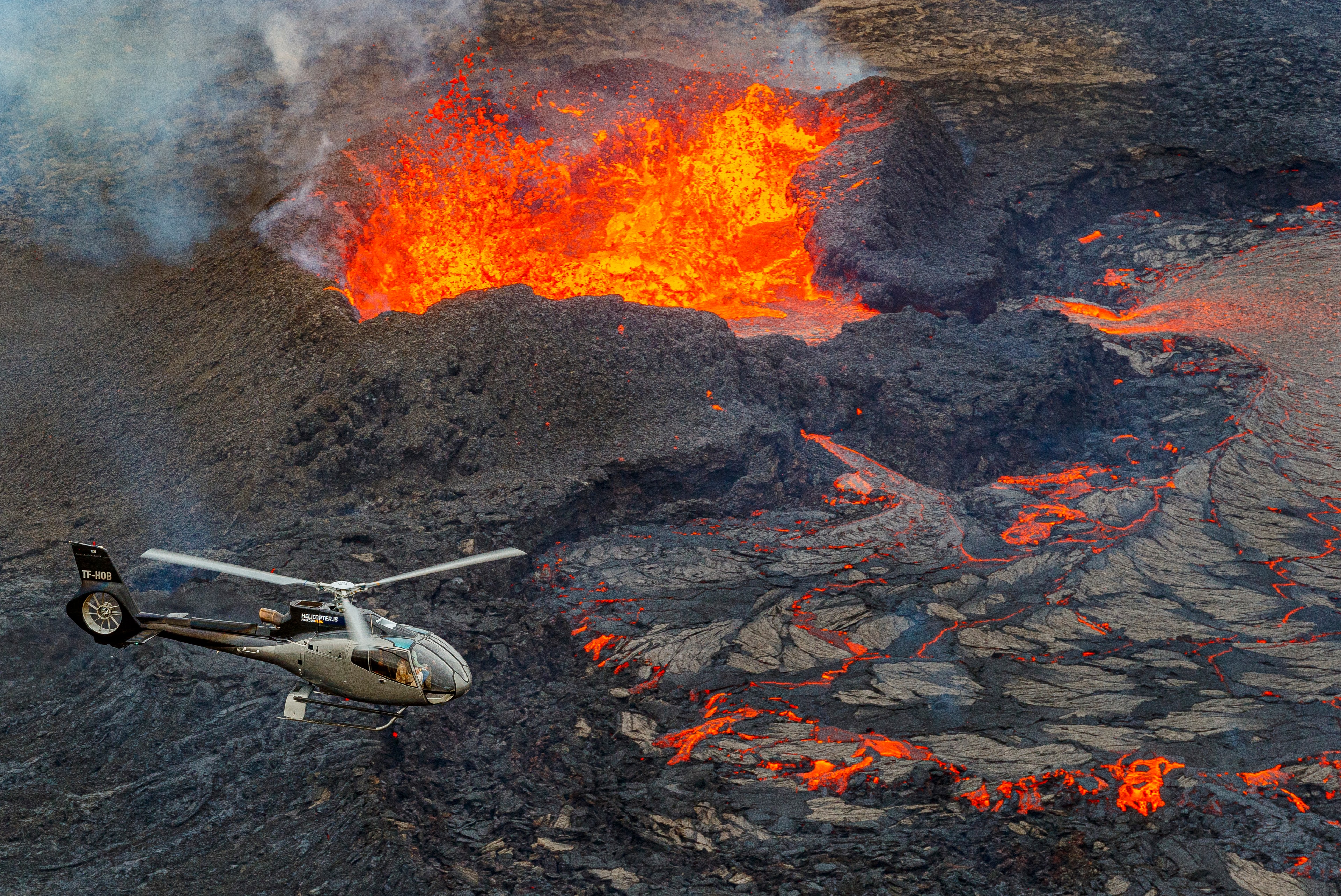
Iceland’s volcanic landscapes are some of the most striking on Earth, shaped by centuries of eruptions. On an Iceland volcano tour, you can explore lava tunnels, craters, and rugged lava fields up close. Some adventures even take you inside a volcano, into the lava cave, for a rare look beneath the surface!
Volcano tours in Iceland are safe and fun activities for the whole family. They are led by seasoned experts familiar with the region who ensure the safety of all visitors. Tour guides also provide all the necessary equipment for you to enjoy your volcano tour safely.
Book your adventure now and experience the sheer strength of a volcano!
Feeling inspired?
of 04
Related Blogs
Browse interesting facts about volcanoes, eruptions, and other must-dos in Iceland.
Let's Talk Adventure
Questions, ideas, or just a need for adventure inspiration? We’ve got you covered. Let’s chat and get you on your way to something incredible.

Learn how Iceland’s lava fields and volcanoes shape the land—start exploring!
The Science of Iceland’s Volcanoes
Iceland’s unique location makes it one of the few places on Earth where the Mid-Atlantic Ridge rises above sea level. The country sits right on top of this massive geological feature, where the North American and Eurasian tectonic plates pull apart at a rate of 2–3 centimeters (0.7–1.1 inches) per year. This movement plays a significant role in the country’s volcanic activity.
Another key factor is the Icelandic hotspot—a powerful source of heat deep within the Earth. Acting like a blowtorch beneath the surface, it pushes magma upward, melting through the crust and fueling eruptions. These eruptions occur roughly every five years, with the most recent ones happening in 2024. In the past few years, the Reykjanes Peninsula has been particularly active, with a series of eruptions reshaping the landscape since 2021.
Together, the hotspot and tectonic plates have shaped Iceland’s dramatic landscape and continue to expand the island. Volcanic eruptions deposit new layers of ash and lava, adding to the landmass. A striking example is Surtsey, an island formed by an underwater eruption that lasted from 1963 to 1967, growing to 1.4 km² (0.54 sq mi).
Iceland is called “the land of fire and ice” for a reason. The country has 269 glaciers and about 130 volcanoes, ranging from stratovolcanoes to shield volcanoes, lava fields, and even underwater formations. Some eruptions happen beneath glaciers, like the 2010 Eyjafjallajökull eruption, which disrupted air travel across Europe.
Why Explore Iceland’s Volcanoes?
Iceland’s volcanoes have shaped some of the country’s most unique landscapes. A striking example is Dimmuborgir, a lava field filled with unusual rock formations and caves. It formed 2,300 years ago after an eruption in a crater row. Icelandic folklore tells of Dimmuborgir as a gateway between Earth and Hell, with legends claiming that Satan landed here after being cast from Heaven.
The country’s volcanic legacy is visible everywhere. Visitors can explore both active and dormant volcanoes and witness their sheer scale up close. Our partners provide guided expeditions to volcanoes in Iceland, including a lava tour deep into Raufarhólshellir. Hike a crater, enter a lava cave, or stand near an eruption site. Few places on Earth bring you this close to nature’s raw power!

Fagradalsfjall Volcano
Fagradalsfjall volcano in Iceland is a tuya volcano located only 40 kilometers (25 miles) from Reykjavík. After lying dormant for 6,000 years, it became the main tourist attraction after its 2021 and 2022 eruptions. The first one lasted six months, making it the longest eruption in the 21st century. The latter followed after a series of earthquakes were noticed on the Reykjanes Peninsula.


Eyjafjallajökull
A stratovolcano covered by a glacier with the same name, Eyjafjallajökull is arguably Iceland's most famous volcano. Located about 100 miles (160 km) from Reykjavík, it sits between one of the largest cascades in the country. A few minor eruptions were recorded between 1821 and 1823. However, Eyjafjallajökull is best remembered for its 2010 eruption, which grounded air traffic in Europe for six days.
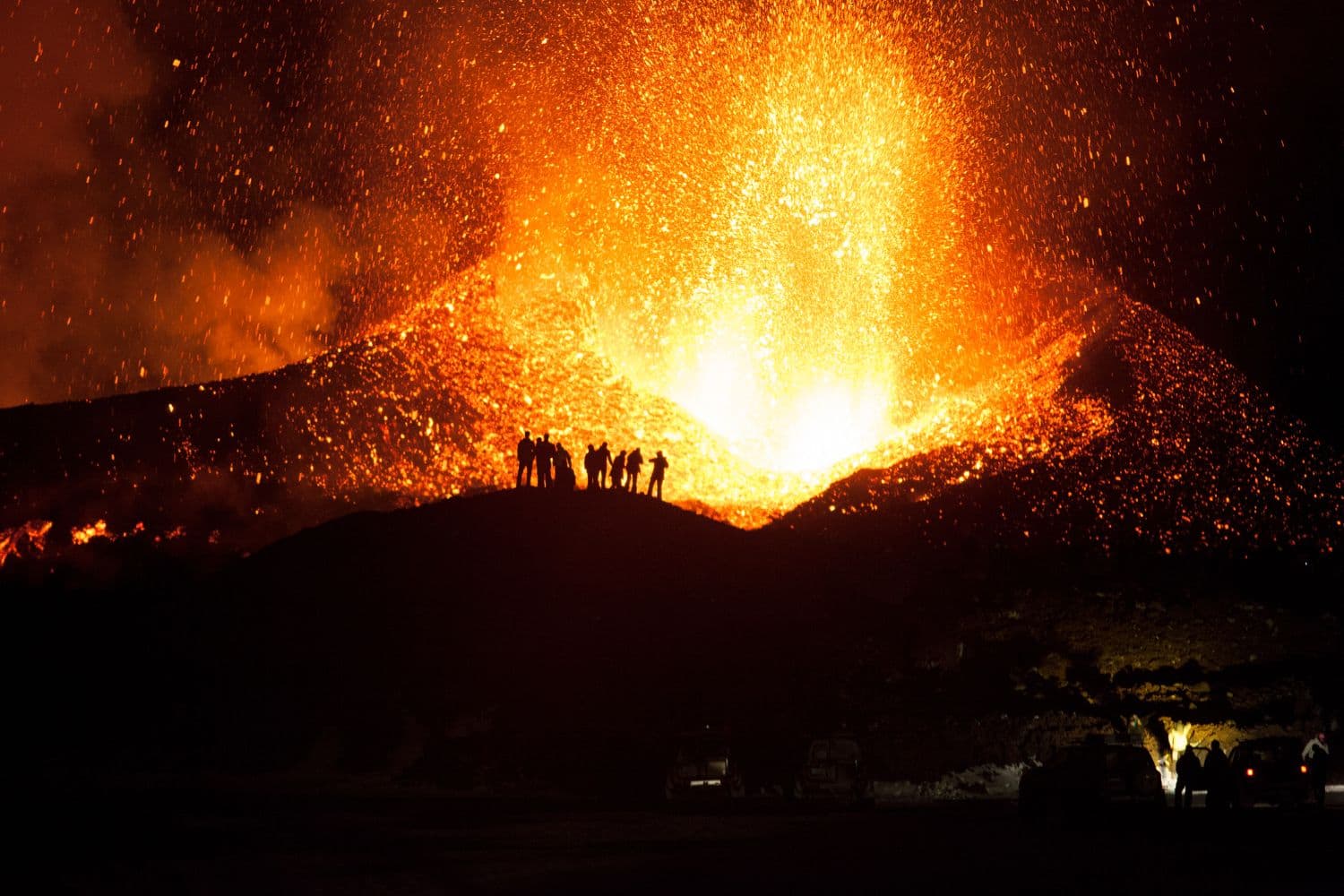

Askja Caldera
Located in the central highlands of Iceland, Askja Caldera is a group of large volcanic craters. This site is a vast, cauldron-like hollow about 50 km2 (19 sq mi) in size, and it features an explosive crater named Viti. While its last eruption occurred in 1961, the latest volcanic activity was detected in 2010. An interesting fact: Apollo astronauts had simulation training at Askja because of its extreme environment and moon-like terrain.

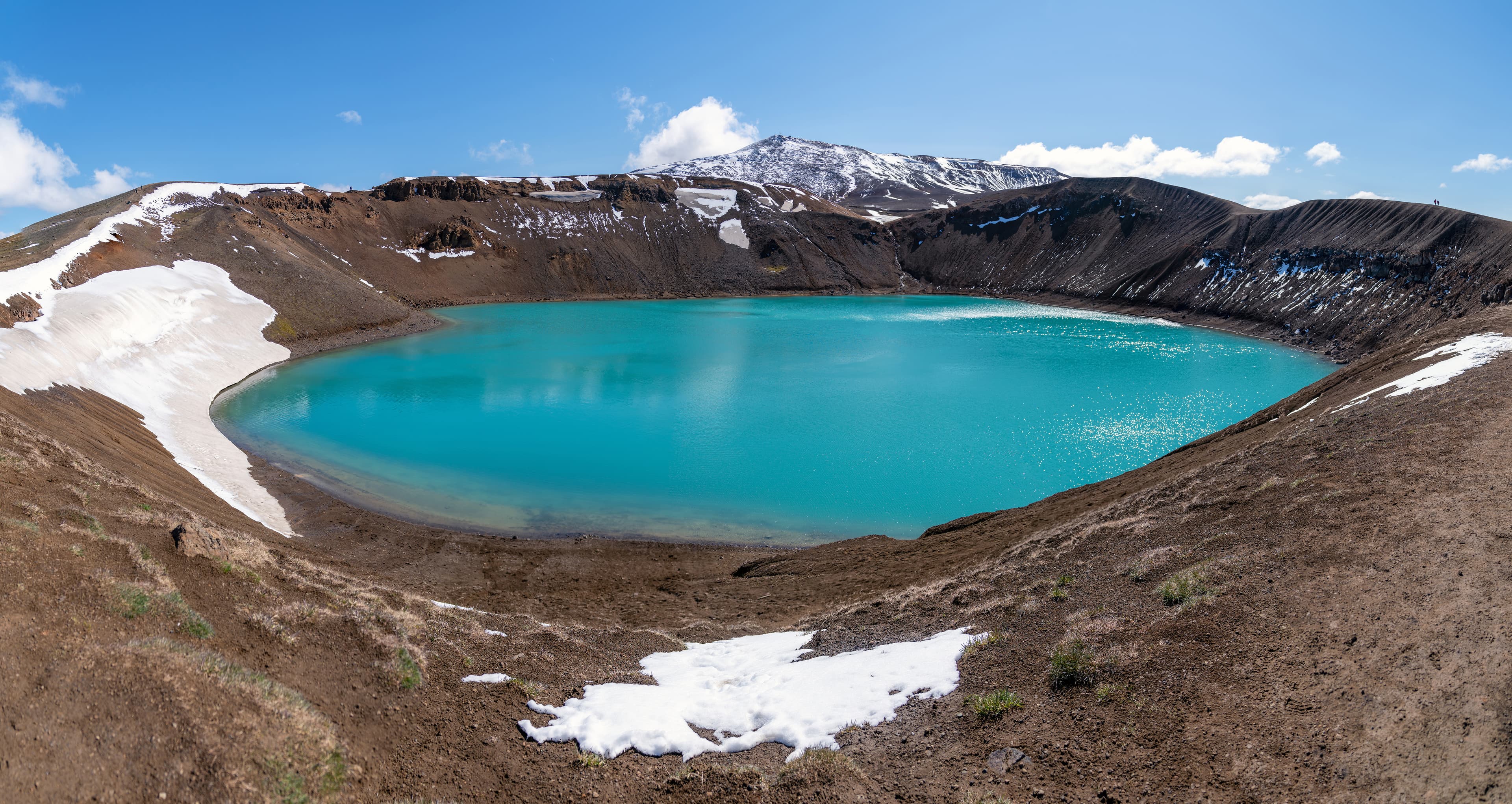
Katla
Katla is the third most active—and one of the most significant—subglacial volcanoes in Iceland. Situated in the south, this fiery mountain is covered by Mýrdalsjökull, the fourth-largest glacier in the country. As one of the most active volcanoes in Iceland, Katla is known to have erupted almost every half-century. Its last large eruption happened in 1918; geologists and scientists keep the volcano under close surveillance.
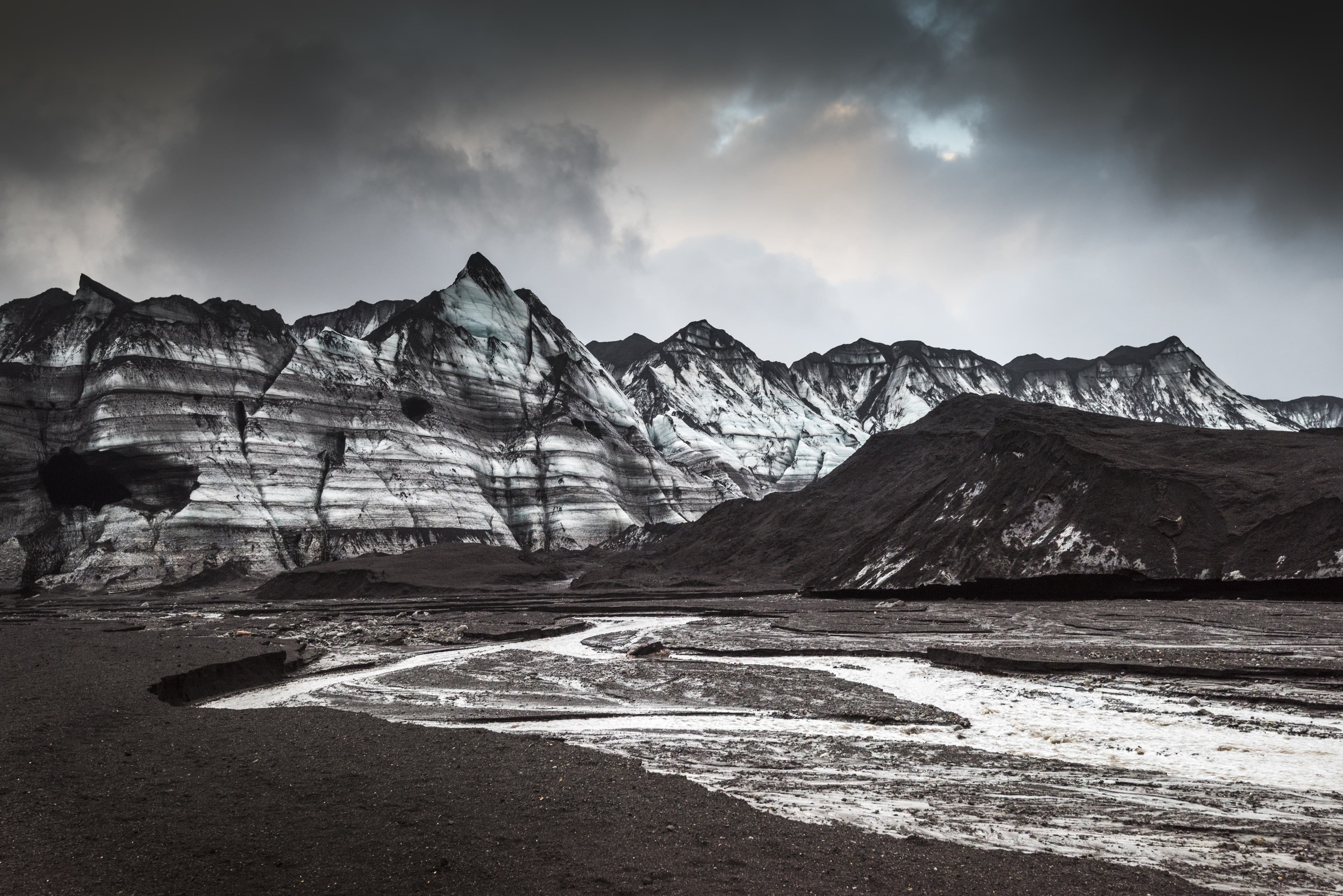
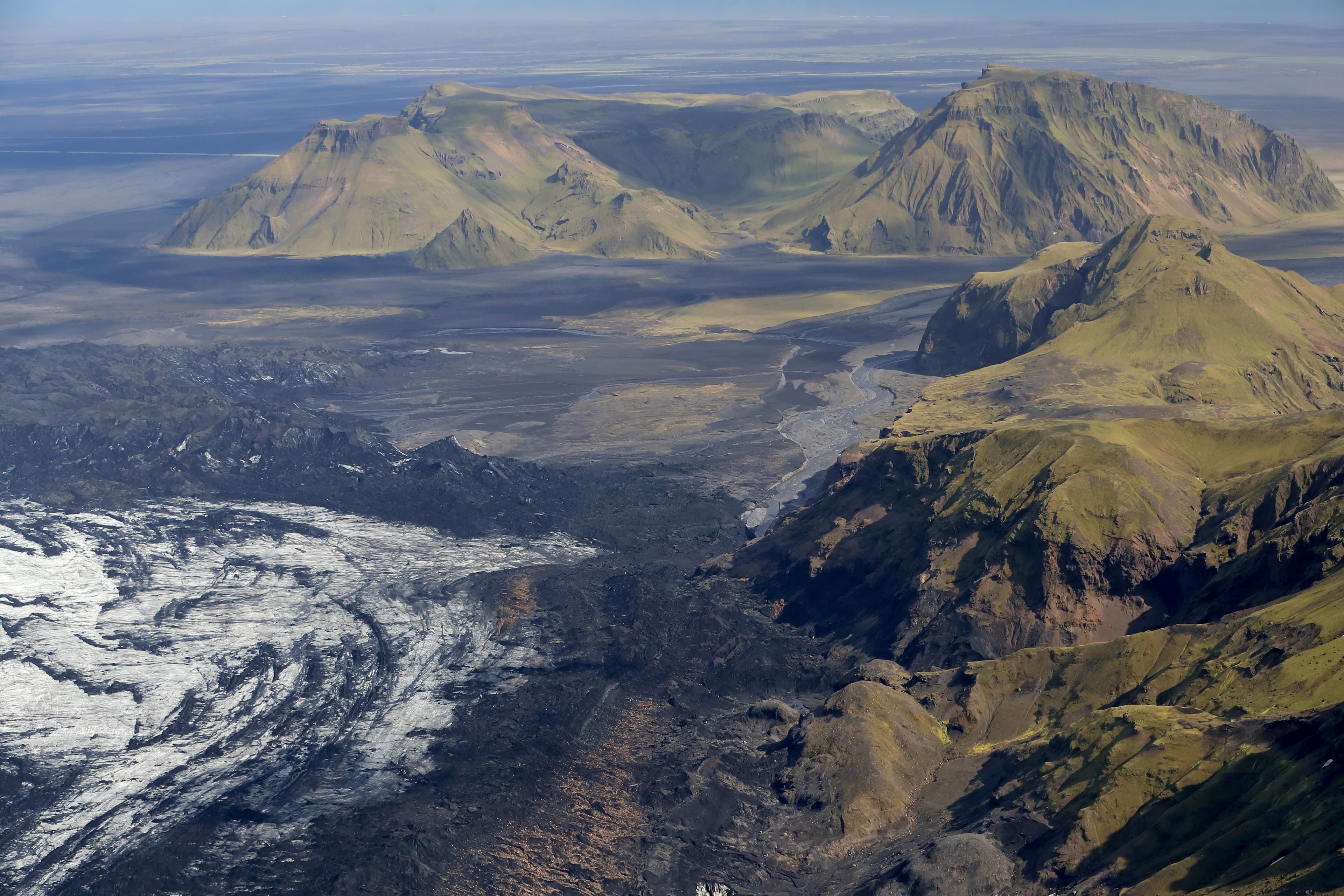
Walk on Lava Fields, Discover Craters
Reserve Your Adventure Today!



What to Expect on a Volcano Tour
Volcano tours are led by experienced guides who know volcanoes and their geology like the back of their hands. Visitors get an in-depth understanding of each fiery mountain and volcanic activity. In Iceland, you’ll have the chance to explore the areas around volcanoes, as well as step foot in underground lava tubes. Our partners also have helicopter tours that can take you to newly erupted volcanic craters and fissures.
Of course, volcano tours are entirely safe as long as you listen to the guides and follow their instructions. The experts prioritize safety over everything and are familiar with the areas they explore. Make sure to wear warm outdoor clothing and suitable hiking footwear on tour. No previous experience is needed to go on an Iceland volcano tour; they’re accessible for both beginners and seasoned travelers.





















